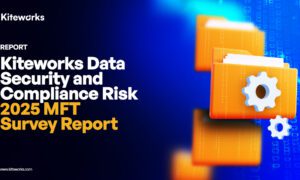Privacy is one of the most important issues right now when it comes to technology. Whether it’s email or stored passwords, sensitive information is a crucial part of online security. Public key infrastructure (PKI), is commonly used for internet encryption and an integral part of the process.
What Is Public Key Infrastructure?
Public key infrastructure is currently used by organizations to manage security. To keep data secure, encryption through a public key is frequently used.
Simply put, encryption is a method of rearranging data so that only the authorized parties can truly understand the information. An encryption is comprised of incomprehensible text created by the use of a cryptographic key. By using encryption, data can be read by the intended recipient.
At the core, cryptographic keys are a crucial concept for public key infrastructure. Not only do they help encrypt data, but they can authenticate the identity of certain devices. Unlike user IDs and passwords, cryptographic technology is much more advanced in ensuring the privacy of data.
Privacy and Security Measures
Many people may wonder what the difference is between encryption and password protection. Most internet users will have a user ID and a password to unlock private information. Specific examples of user ID logins include:
- social media sites
- bank accounts
- online marketplaces
- networking
Using a password to access these accounts is one way of safeguarding an online account from hackers. Without some sort of protection, an individual could use these accounts to impersonate the actual user’s identity. Password protection is a way to secure privacy by allowing only the authorized user to access the desired information.
Encryption is a more secure way of guarding privacy online. Encryption is typically used for very sensitive information by using an algorithm and key. Encryption conceals text within the message so that only the authorized party has access. By scrambling data, the message is essentially hidden from hackers.
One of the many reasons encryption is preferred for security measures is due to its code. Many passwords that are created by the users themselves have words or numbers that can be easily figured out by hackers. Encryption ensures an added level of security.
How Does Public Key Infrastructure Work?
Public key infrastructure works by deploying cryptography algorithms that use mathematical formulas to encrypt messages. Two main encryption options include:
- Symmetric encryption
- Asymmetric encryption
Symmetric encryption is a simpler type of algorithm. When a message is typed, the plain text goes through a mathematical formula. Once the encryption process has taken place, the same key is necessary to unlock the encryption.
Asymmetric encryption is an advanced security option. By using two different cryptographic keys, a message will still pass through the mathematical formula for encryption, but now requires a private key. This is an especially handy encryption to have for digital signatures. Asymmetric encryption can be used for:
- code signing
- bitcoin
- signal private messenger, etc.
What Are The Benefits of PKI?
Public key infrastructure helps secure sensitive data. Sensitive data can mean a variety of documents and information. Sensitive data can include protected health information, education records, cardholder information, and customer data.
Sensitive information can reveal personal details that may be surprising to the user. Data can include particular religious beliefs or sexual orientation. Personal information can also include medical illness, financial documents, political opinion, and race. To make data confidential, encryption is a secure tool that many individuals and companies use.
Public key infrastructure plays a crucial role in the security of several vendors. To protect sensitive data, it helps authenticate and secure technological processes such as:
- XML signature
- mobile signatures
Encryption allows for a certain amount of accountability. Once a document or data has been sent, the sender is not able to deny they sent the message. With encryption, this type of information can be verified.
Using a public key infrastructure can help prevent certain data hacks such as data hacks, corporate espionage, and cyber-attacks. In the United States, the Health Insurance Portability and Accountability Act requires security features for certain businesses.
Public key infrastructure can be used to secure web browsing. In addition to private email and specific data on credit cards or health information, surfing websites and using communication platforms can be secured. This is a major benefit for individuals who use password-free Wi-Fi access. By identifying the device authorization, logging into the Wi-Fi account is not an every-day occurrence.
The auto manufacturing industry has started to use public key infrastructure to protect online-related devices. Cars that provide GPS and call-for-help services collect and pass data. With a secure connection, sensitive data is protected.
Wrap Up
Certification and verification are now more important than ever. PKI can secure many forms of sensitive information that modern-day society needs. Personal information is passed through connected devices and will require strong security.
The internet is connected to an increasing amount of devices. With several new forms of applications, many of us feel vulnerable. By using public key infrastructure to successfully encrypt messages, the individual can verify their identification. Even those who do not put their credit card information online can greatly benefit from the security and privacy this structure provides.



































